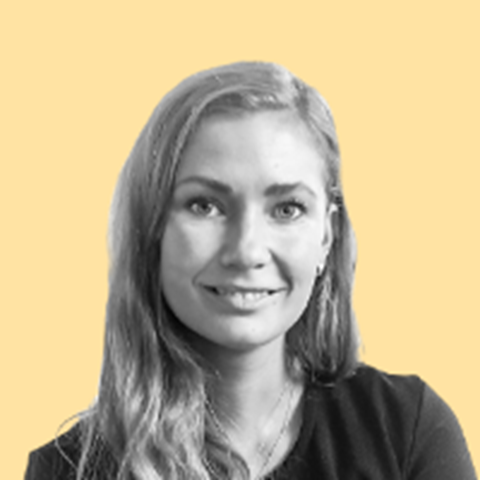Non-biological mother: “I would love if I could be pregnant”
Karin and her wife, Jake, will soon start fertility treatment. Karin suffers from a hereditary blood disorder, so Jake will carry their child. But how do you handle being a non-bio parent when you have always dreamed of being pregnant yourself?
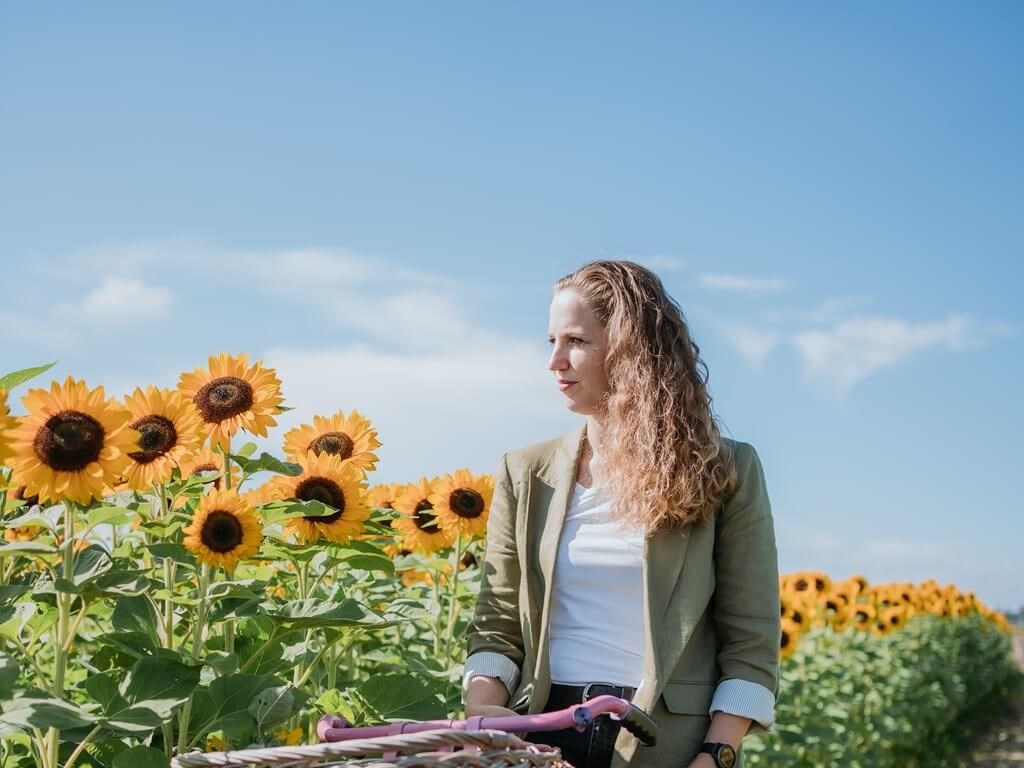
Lots of thoughts, worry and a long grieving process: this is what has been running through the mind of 37-year-old Karin for many years, but came to a head when she and her wife, 34-year-old Jake, decided to add to their family with the help of fertility treatment. The family, who lives in the Netherlands, also includes 11-year-old Bryan, Jake's son from a previous relationship and their dog, Bailey.
The couple has laid out a thorough plan, which includes choosing a sperm donor, finding the best fertility clinic and making the decision that Jake will carry the child. Check. Check. Check. Add to that a plethora of joy, excitement and butterflies about the hopefully imminent pregnancy.
I wouldn’t dare risk passing on the disease and being pregnant would pose a great risk to my own health as well.
Unable to carry the donor child
However, the couple's story also involves Karin’s sadness that it won’t be she who will get to experience being pregnant; something which has been a huge dream of hers for her entire life. In the wake of her unfortunate discovery, a myriad of worries and concerns have followed:
What will it be like not to have the same physical relationship with the child as Jake? Will she be able to love the child in the same way? Will she feel like a real mother?
Karin has a blood disorder which can be hereditary. She has known for the past 10 years that pregnancy and childbirth will involve a risk for both her and the child, as there is an 80% risk that Karin can transmit the disease.
“I would love if I could carry out a pregnancy, but that is not an option. I wouldn’t dare risk passing on the disease and being pregnant would pose a great risk to my own health as well. One kick from the unborn child could cause internal bleeding in my body," says Karin.
When we made the decision about fertility treatment, I wanted to be able to accept the situation for what it was. It was important that I dealt with my own issues before having children.
Jake is the one who will hopefully carry out the pregnancy with their donor child, but she wishes that Karin could have had the experience of being pregnant herself. Jake could see that Karin needed professional help to deal with her emotions, which included sadness, fear and jealousy. Therefore, she suggested Karin go to see a psychologist:
“When we made the decision about fertility treatment, I wanted to be able to accept the situation for what it was and change my mindset towards it. It was important that I dealt with my own issues before having children. It has been a very long and difficult process. To be honest, I should have received psychological help many years ago. In the Netherlands, it is taboo to go to a psychologist, but I have chosen to be open about it," says Karin.

Remember to seek help
The psychologist helped Karin to accept her grief and helped her put all her thoughts into words. For example, Karin was afraid that she would become jealous of Jake and her soon-to-be pregnant belly; for instance, that she would be jealous when the child kicks. Karin was also worried that she would not feel an emotional connection with the child, since she herself would not experience the child growing in her own body for nine months.
"My best advice to others in the same situation is to talk about it and get help from professionals. Discussion groups can also be an option. It is perfectly ok to feel fear and sadness; it’s also okay to be afraid of your own feelings. Saying them out loud makes you realise, fortunately, that your thoughts are not as dangerous as they seem in your own head," says Karin. She elaborates:
“You have to deal with your own loss before you start the fertility journey. It is ok to cry and also ok for others to see you cry. Let go and ask yourself: Why do I feel this way and how can I accept these feelings? Your mental health is so important.”
My sessions with the psychologist have reassured me that my feelings for the child will grow as the child grows inside Jake's belly.
Karin and Jake have chosen to be very open about their experience. They’ve spoken a lot about it to their family and friends and share their reflections on social media. It is important for the couple to convey the message to others that they are not alone in the process and thus encourage them to seek help.
“Our future child will be born into great love. That's another reason we share our story; so that, sometime in the future, we can show our child the thoughts and decisions we experienced - like a long diary with many ups and downs along the way."
Reducing the child's risk of hereditary diseases
Karin’s rare blood disease means the couple are no stranger to the risks involved with hereditary conditions. Therefore, they have chosen to use GeneXmatch – an additional service offered to aspiring parents here at European Sperm Bank – which screens the genes of the prospective mother and the donor prior to insemination. GeneXmatch increases the chances that the future child will be healthy by reducing the risk of having a child with a genetic disease. The test compares the genes of the future biological mother - in this case, Jake - with the genes of the preferred sperm donor.
The test determines if the carrying parent and the donor have mutations in the same genes, therefore establishing if there is a risk that the child will inherit a genetic disease. GeneXmatch screens for more than 400 genetic diseases. The process is simple: Jake just has to send a sample of her saliva and European Sperm Bank will do the rest.
"I am the perfect example of why GeneXmatch makes so much sense; I know what it's like to have a genetic disease and I don't want to pass that on. It is far better to prevent risks and increase the chance of a healthy baby if you have the opportunity to do so," says Karin.
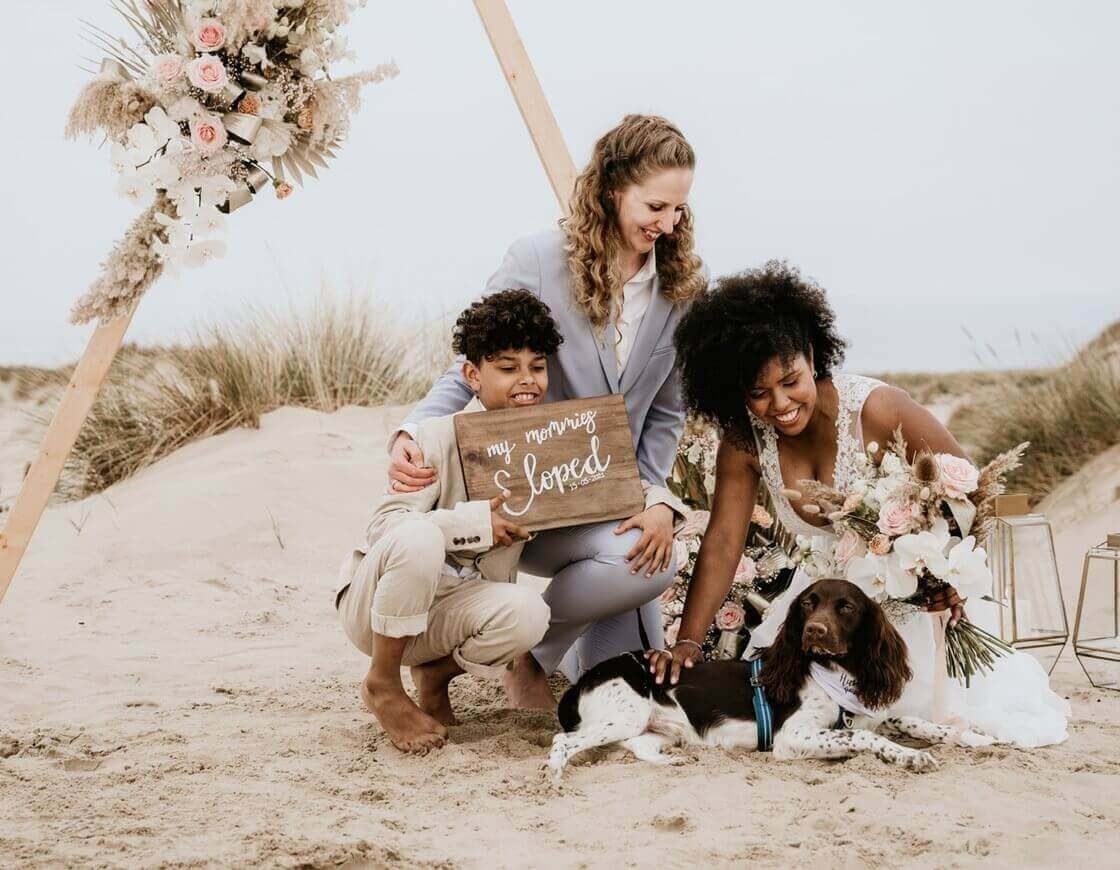
A free consultation answered many questions
Jake and Karin have also taken advantage of European Sperm Bank's offer to book a free consultation, where they could get answers to a number of questions. These included enquiries about pregnancy slots and how quickly a sperm donor can be "sold out". The couple had also done a lot of research themselves, which professionals at European Sperm Bank could confirm or deny during the interview.
Jake and Karin already have some favourites among the donor profiles on European Sperm Bank’s website, but are waiting to order the donor sperm until their fertility clinic has decided which fertility treatment is best for the couple. They are hoping to choose a donor in early 2023.
"It’s great that the staff at the clinic are so thorough, but it’s not so great for my patience!" says Karin. She concludes:
“I have learned a lot from this process and I will always go back to a psychologist again later if I need to. If we break an arm, we go to the doctor, but we also have to dare to seek psychological help when it is the psyche that hurts us. My psychologist herself had similar problems in the past and knowing that she could relate to my situation made me feel very safe. She has also reassured me that my feelings for the child will grow as the child grows inside Jake's belly. I'm sure everything will be fine. Right now, I'm just happy and looking forward to everything that's going to happen.”
You can follow Karin and Jake here
Karin and Jake have a paid collaboration with us here at European Sperm Bank.
You might also enjoy
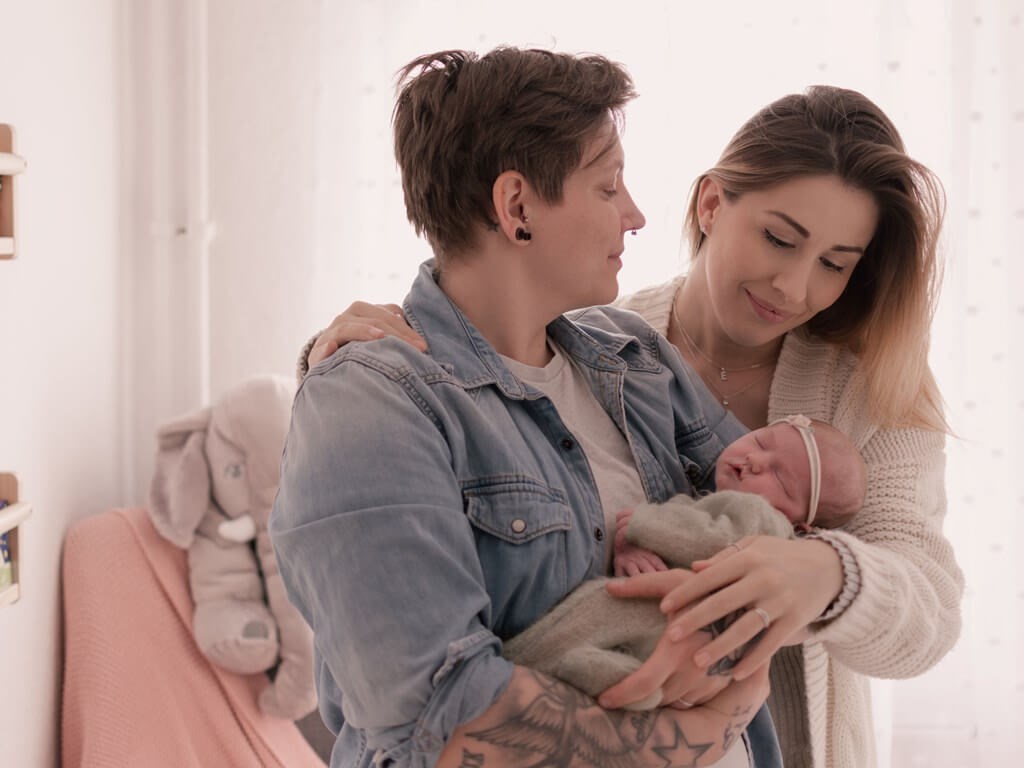 Customer stories
Customer storiesA rainbow family's search for a sperm donor: from grey market to sperm bank
The German-English couple Hayley and Katja Schönberg have been on an eventful journey before they were able to welcome their little daughter. A journey with detours into a world they knew nothing about: the grey market for sperm donation.
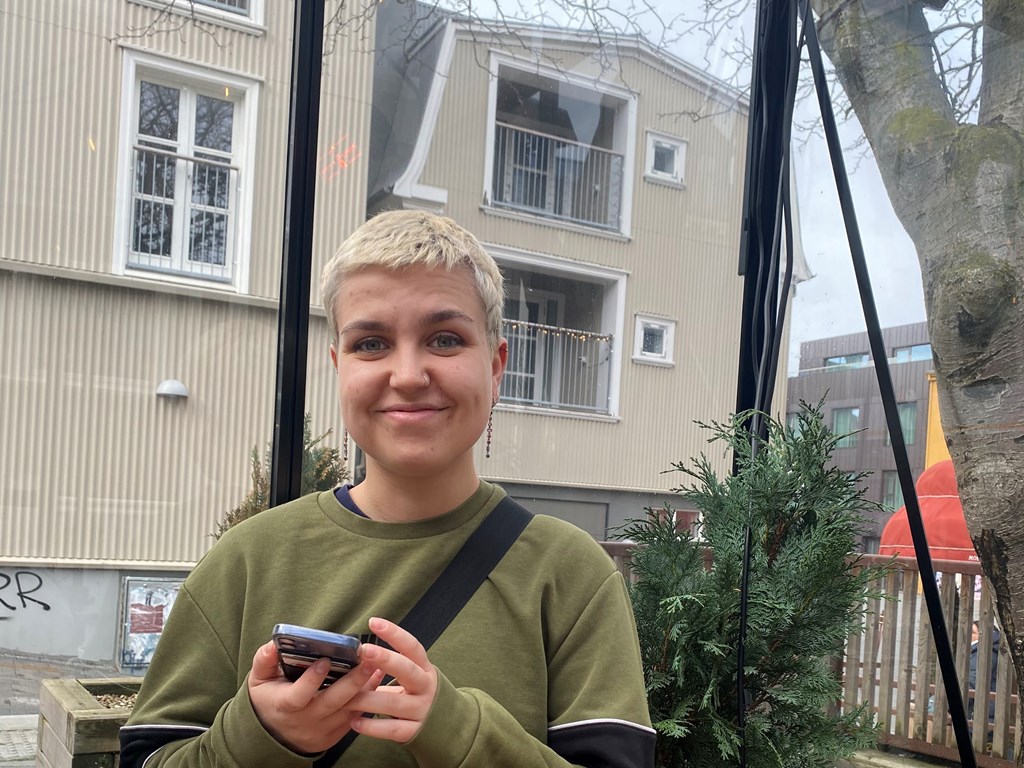 Personal stories
Personal storiesDonor child on her search for half-siblings: “I was curious about the people I share DNA with”
22-year-old Rikke Jespersen has eight donor half-siblings, all of whom were born with the help of the same sperm donor. Here she talks about her thoughts before and during her search for half-siblings.
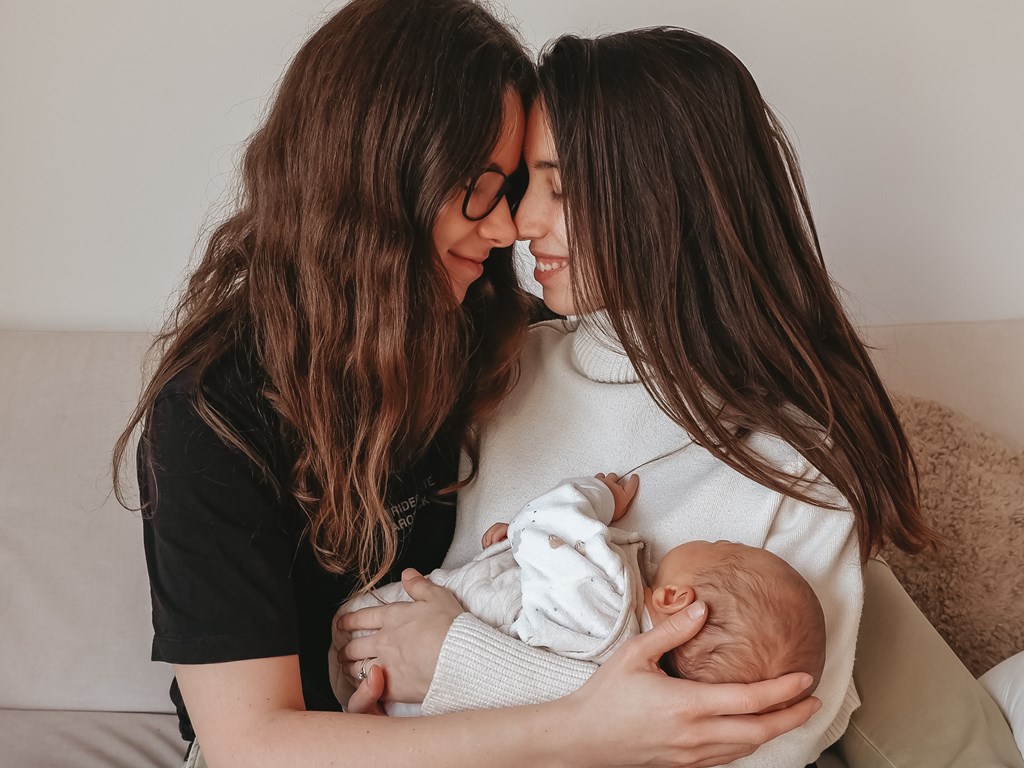 Personal stories
Personal storiesLesbian couple Jo and Viv travelled abroad for fertility treatment
Married couple Jo (25) and Viv (29) live in Poland, where LGBTQ+ people are not allowed to adopt or have children through assisted reproduction. Therefore, welcoming little Ivy into their family was quite the journey, mentally and geographically.
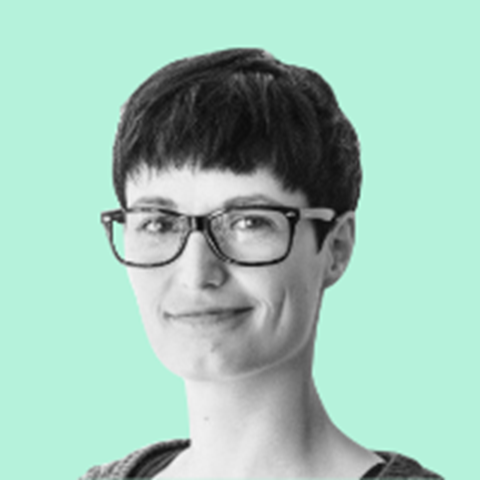 Helle Tyllesen
Helle Tyllesen